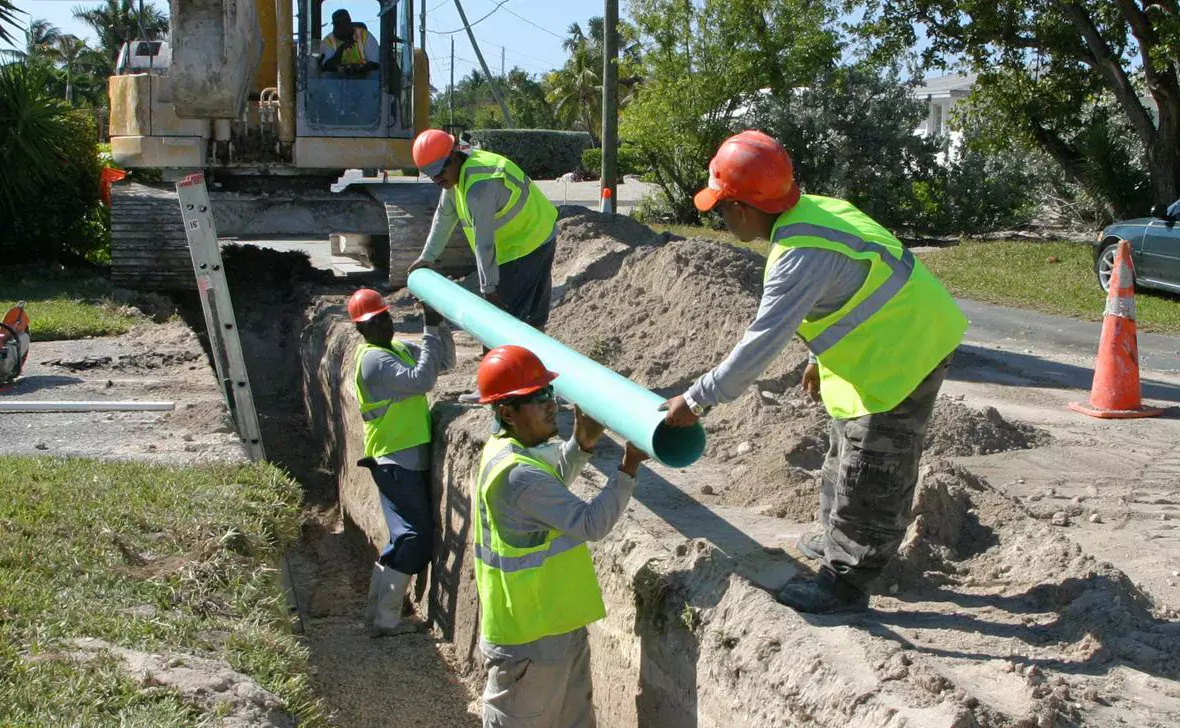In a grinder system, small diameter mains are installed utilizing a directional boring technique. It is a minimal impact trenchless method of installing underground utilities such as these pipelines.
The technique is routinely used when conventional trenching or excavating is not practical or when minimal surface disturbance is required. With a grinder station connection, a grinder pump and tank are (hyperlink to poster of the grinder pump, as well as time-lapse video) installed in-ground on the property with the connection to a house and then to the County sewer line.
Waste flows from the home into the grinder tank, and when it reaches a certain level it is then pumped from your property directly into the County’s sewer system for treatment.
Owners are responsible for:
- Maintaining the plumbing and sewer lines from the home to the grinder station tank;
- Providing the electricity it needs to run on.
The County owns and is responsible for:
- Installing the grinder tank and sewer lines between it and the street;
- Restoring property to its pre-construction condition;
- Repairing and maintaining the grinder system pump, tank, control panel, and sewer line leaving the grinder system;
- Responding to all alarms and customer concerns.
Individuals taking part in the grinder station program will:
- Meet with the County staff to review the property and discuss the installation location of the control panel and grinder tank. The County will confirm existing utilities, septic system location and attributes like fences, gates, landscape, and sprinklers, to find the least obstructed path for installation and take pre-construction photographs.
- Meet with the County customer service representative to go over payment options and sign a maintenance and installation agreement, so that the home-owner and the County can work together as partners to ensure the grinder system installation works as it should.
- Work closely with approved contractors to review the property and discuss installation. The approved contractor will confirm existing utilities, septic system location and identify work areas with flags and stakes, so there’s an agreed upon location for the grinder tank and control panel.
- Be contacted by the County’s electrical contractor to install the dedicated electrical service, electrical disconnect, and control panel.
- Schedule a construction start date. The work is predictable and so is the schedule.
- Be updated by the County approved contractor on connection progress, as well as the abandonment of the existing septic system.
Residents should rest assured that a County utilities field inspector will be on site for the grinder system installation and septic abandonment process.
Grinder station operation during power outages:
County-maintained grinder stations will not operate without power, but may be powered using a portable generator during power outages.
View these generator use FAQs for details.


